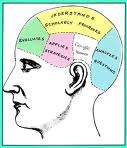 From the Barnes & Noble Review. The entire interview is well worth reading:
From the Barnes & Noble Review. The entire interview is well worth reading:
That it [publishing] was reserved for a professional class. There was no point in educating people to read and write who weren’t also going to have access to books, and the people who had access to books were generally in centers of learning or churches. You couldn’t have mass literacy without also mass availability of things to read, which didn’t happen until after Gutenberg. So literacy went through this curious transition where it became more critical to society, and you could no longer make a living just by the ability to read and write.
So when I say “publishing is the new literacy,” I don’t mean there’s no role for curation, for improving material, for editing material, for fact-checking material. I mean literally, the act of putting something out in public used to be reserved in the same way. You used to have to own a radio tower or television tower or printing press. Now all you have to have is access to an internet café or a public library, and you can put your thoughts out in public.
So what happened to literacy in the 1600, 1700 and 1800s is that it went from being reserved for a specialist class to being a general feature of the middle class. The same thing is happening to publishing—the ability to put something out in public is becoming more important to society, but the delta between “I can put something out in public” and “I can’t put something out in public” is no longer so great that you can automatically make money simply by having access to the means of publication.

































